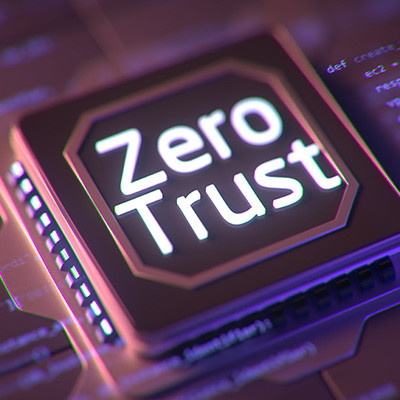ImageSys LLC Blog
Zero-Trust or VPN? Which is the Superior Option?
Security is part of running your business where you have to adapt and make changes on the fly. One best practice that has always been a staple of any security infrastructure, however, is the virtual private network. The VPN might be important, but it’s one aspect of business technology that is changing thanks to the adoption of zero-trust access policies.
Should you go with a VPN or zero-trust? Let’s go over both.
Explaining VPNs Versus Zero-Trust
To compare these two effectively, it’s important to look at their intended use.
Virtual private networks are used to build encrypted connections between two of your network endpoints. For example, you could use a VPN at a small local cafe while working remotely to ensure you have access to all of your important data, all without putting your more sensitive information at risk of theft.
Zero-Trust Access is more of a strategy rather than a solution, and the strategy relies on the principle of least privilege. Users must continuously authenticate themselves during each step of any business process. Essentially everyone is a threat until they prove they are not, and they must be confirmed legitimate periodically throughout the work session and process.
You can see how the two differ. VPNs keep threats out without necessarily restricting the user, whereas zero-trust restricts the user until they can prove they are not a threat—and even then, they have access to the minimum they need to do their job.
Let’s Compare and Contrast the Two
Now it’s time to take a look at what you should consider for each of these options when they are both on the table.
Containing Data Breaches
If you experience a data breach, a VPN can help to keep the attacker from accessing more than what the VPN was directing the user to. On the other hand, with a zero-trust access system, you limit the data breach to one device, service, or application.
Hosting Differences
A VPN will be hosted on your business’s physical location, but that said, there are cloud solutions available. Zero-trust is agnostic of what technologies you use, in a sense, but it can be applied to both on-prem and cloud-hosted applications.
Functionality of the Specific Solutions
Really, at the heart of it, a VPN only creates a secure means of accessing different networks, whereas zero-trust does the same while restricting users based on your network’s configurations and policies.
Receiving Remote Support
Remote work is so common nowadays that having remote support options for your employees is paramount to their continued success. Securing them while they are out of the office is crucial, and a VPN can handle this important task, but zero-trust does so much, much stronger.
How Strong is Each Solution?
Finally, we get to the question that you really want answered, and that’s data security. A VPN secures data while it’s traveling between networks, but the protection ceases once it reaches its destination. Zero-trust networks, on the other hand, keep data secure regardless of the point, for every resource.
With these comparisons in mind, it’s clear that both VPNs and zero-trust policies have a place in an IT infrastructure, as long as you don’t expect them to do the same things. Ultimately, experts believe that zero-trust will eventually be the better solution for holistic security, and understandably so.
If you want data security that you don’t have to worry about, ImageSys LLC has got your back. To learn more, call us today at 301-740-9955.
About the author
Hamed Rahimi has not set their biography yet


Comments